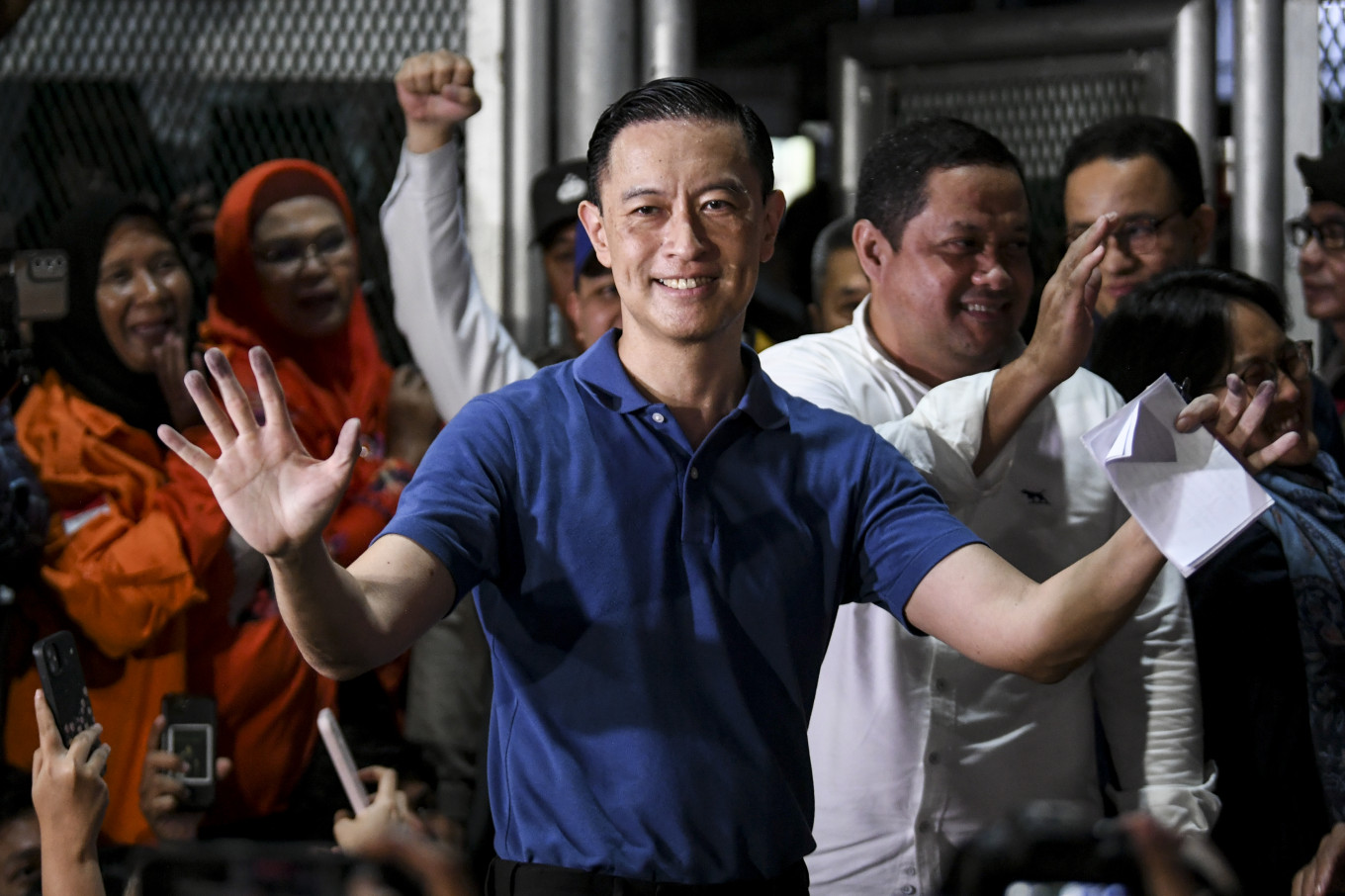Popular Reads
Top Results
Can't find what you're looking for?
View all search resultsPopular Reads
Top Results
Can't find what you're looking for?
View all search resultsPardons and power plays
The President's decision could have serious implications not only for the country’s anti-corruption drive but also for the reputation of the judiciary.
Change text size
Gift Premium Articles
to Anyone
P
resident Prabowo Subianto has won widespread praise for his decision to release two public figures from jail who were recently convicted for corruption, especially since the public overwhelmingly believe they were targets of separate political persecutions. He may seem merciful, but his decision could have serious implications, not only for the country’s anti-corruption drive, but also for the reputation of the judiciary.
Prabowo used his constitutional prerogative in granting an abolition, a legal term which erases the entire case including the court ruling from public records, for former trade minister Thomas Lembong. At the same time, he granted amnesty to Hasto Kristiyanto, the former secretary general of the Indonesian Democratic Party of Struggle (PDI-P).
The President has not publicly explained why he gave the clemency just a few weeks after their sentencing, which resulted in four and half years for Thomas, and three and half years for Hasto. His office said it was done to unite the country’s political forces and that he had waited for the courts to make their rulings to avoid accusations of interfering with the judiciary.
We beg to differ, at least on the timing. Both men had not used up all available legal channels to seek reprieve. They could still appeal to the Higher Court, as Thomas was already in the process of doing, and failing that, they could turn to the Supreme Court. The presidential clemency, historically in most cases, is not given before all these channels are exhausted.
Both Thomas and Hasto presented a strong defense during their trials, and many believe they still had a chance of winning their cases in higher courts, that is, if we still believe that the judiciary is truly independent and credible. They may be free men now, but they have lost the chance to prove their innocence before the nation, thanks to the merciful Prabowo.
Thomas and Hasto were clearly being targeted for legal prosecution by the state on behalf of former president Joko “Jokowi” Widodo.
Thomas served in the Jokowi cabinet from 2015-2019, but became his most vocal critic in 2023 when he joined the presidential campaign team of Anies Baswedan, who was contesting the 2024 race against Prabowo, who had paired with Jokowi’s son Gibran Rakabuming Raka. The PDI-P had been Jokowi’s main political vehicle throughout his 10-year presidency, running and winning the 2014 and 2019 elections on its ticket, but they fell out of favor ahead of the 2024 presidential election when they backed different candidates.
The state prosecutors were able to dig up dirt on both Thomas and Harto for something that happened years ago to charge them with corruption. What surprised most was that the courts played along in delivering guilty verdicts. Although no longer in power, this shows that Jokowi still has strong influence, including in the country’s judiciary.
This is why Prabowo’s clemencies for both men were hailed by most of the public who have grown weary of Jokowi’s constant cawe-cawe (meddling). For once, the real President has shown who is really in charge of the country.
But again, the timing raises suspicions that Prabowo may have other motives in granting clemency, certainly in the case of Hasto.
The day the amnesty was announced, the PDI-P went ahead with its long-awaited congress. Party matron Megawati Soekarnoputri was reappointed to the chair by acclamation, and her first order of business was instructing the party, the lone opposition in the House of Representatives, to support the Prabowo administration. Whether this translates into seats in the cabinet, we have to wait and see.
This is a sad commentary about the state of our democracy, when the judiciary is reduced to serving the wishes of the executive and legislative branches. Trias Politica, the separation of powers between the three branches of government to ensure checks and balances, is dying.
The country’s political elite, including both Jokowi and Prabowo, but also the PDI-P and the House of Representatives which endorsed the clemency, are using the law as a weapon for their individual or group interests.
When political considerations are increasingly trumping the legal system, this could eliminate what little trust the public has for the judiciary.











